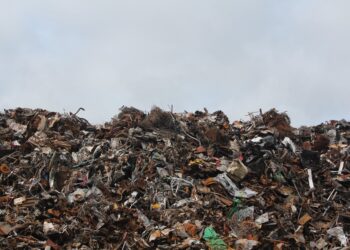Sustainability has long been a problem for the cocoa industry which is negatively impacting farmers and the planet. And the issue is bound to get worse if chocolate and cocoa manufacturers fail to use sustainable practices. Barry Callebaut is the worlds leading business to business (B2B) supplier of chocolate and cocoa products. They have been the first to announce that their chocolate will be 100% sustainable by 2025 outlined in the new sustainable strategy, Forever Chocolate. According to statistics provided from the Fairtrade Foundation, around four million tonnes of cocoa beans are produced every year. Demand for chocolate is expected to exceed 4.5 million tonnes by 2020. So with this demand almost guaranteed for chocolate traders, it is time that more sustainable practices are upheld throughout the industry. There are 129 Fairtrade certified cocoa producer organisations in 20 countries around the world, however, sustainable chocolate requires more than sustainable cocoa. It aims to achieve zero net deforestation and curbing carbon emissions for the production of any chocolate ingredient or chocolate product.
Barry Callebaut ( @BCgroupnews ) has invented four main targets to achieve by 2025 which are:
- Eradicate child labour from the supply chain
- Lift more than 500,000 cocoa farmers out of poverty
- Become carbon and forest friendly
- All products will be 100% sustainable
This Swiss based company was first formed in 1996 and now operates in 30 countries worldwide. Barry Callebaut deals with the chocolate process from sourcing and processing cocoa beans to producing chocolate fillings, decorations and compounds. The company has 53 production facilities around the world and a workforce of 10,000. Its customers include multinational and national branded consumer goods manufacturers and artisanal users of chocolate from chocolatiers to pastry chefs, bakeries and caterers including Hersheys. They have also pioneered some of the latest chocolate innovation processes such as heat-resistant chocolate.
Antoine de Saint-Affrique, CEO of Barry Callebaut: We have been pioneering sustainability in cocoa and chocolate for many years, and we have made great progress. But despite all our efforts, only 23% of the cocoa beans we source are from sustainability programs. We are determined to step change this and have 100% of our chocolate and its ingredient sustainably sourced by 2025.
For your opportunity to see how industry experts are supporting a sustainable bioeconomy, come along to our next Bio-Based Live Europe event held in Amsterdam.
Forever Chocolate is an invitation to find structural solutions to the sustainability challenges in the chocolate supply chain to make this target a reality. Saint Affrique also said: The targets we have set ourselves after a thorough materiality analysis are bold, and we recognize that we do not have all the answers. What we know for sure is that we cannot reach these targets by ourselves. That is why we intend to start a movement that also includes governments, NGOs, consumers and our customers.
Deforestation is proven to be one of the biggest causes of global warming. This does not just have an obvious impact on the planet but it also affects the farmers with frequent droughts ruining their yield. If the problem is not tackled then the ecosystems that provides chocolate will rapidly erode. Since 2009 Barry Callebaut have made it their priority to make steps in the right direction in their sustainability improvements. Now they have managed to reduce their relative energy use and carbon emissions by 20%. At more than 75% of their production facilities is an appointed energy champion for on-site energy saving measures. In the coming years they expect to make further reductions.
Sourcing sustainable ingredients is another important issue to tackle as a company. In contrast to sustainable cocoa organisations, Forever Chocolate is about making all of their products from sugar, palm oil, vanilla, hazlenuts etc. 100% sustainable. Barry Callebauts objective is to feed the worlds growing population without depleting the worlds resources.
Through its sustainability programs with farmer cooperatives in origin countries, as well as through its direct sourcing and farm services organization, Biolands, the company has invested in productivity and community development for the past decade. In addition, Barry Callebaut was a founding member of the World Cocoa Foundation as well as the International Cocoa Initiative (ICI) and one of the driving forces behind CocoaAction, the World Cocoa Foundations voluntary strategy to align the initiatives of global cocoa and chocolate producers to improve the livelihood of cocoa farmers. Forever Chocolate is aligned with existing efforts, but recognises the need to go above and beyond considering the urgency of the challenges in the chocolate supply chain.













